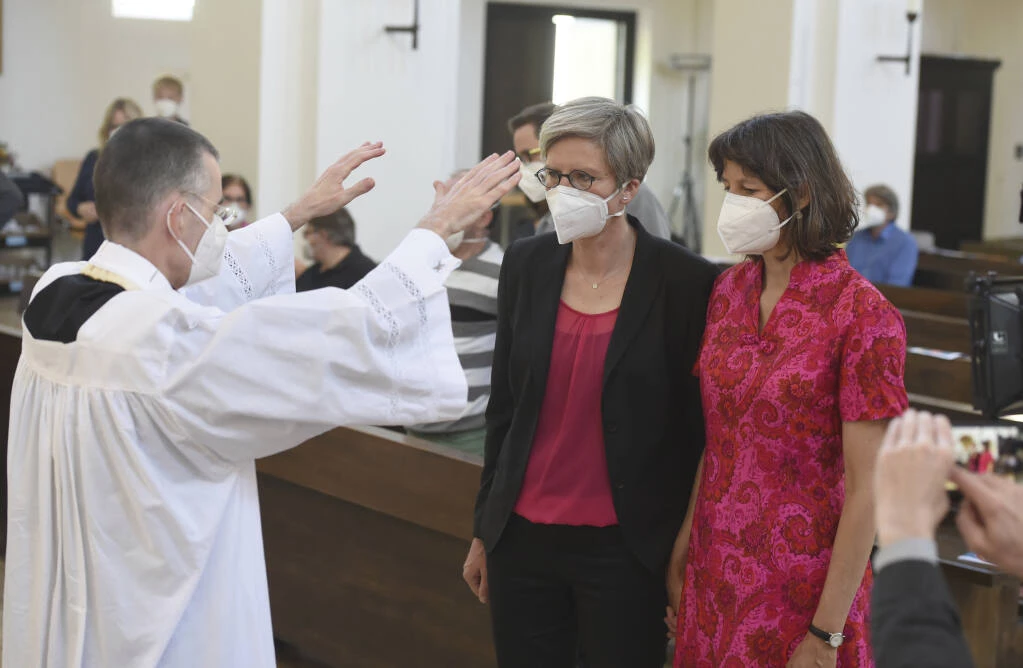Pope Francis defended Friday the Catholic Church's recent approval of blessings for same-sex couples, while attempting to soothe his conservative critics.
In December the Vatican's Dicastery for the Doctrine of the Faith, its department for Roman Catholic doctrine, said priests could bless "irregular" and same-sex couples under certain circumstances.
That sparked an outcry in some quarters, particularly in Africa, with critics accusing the Church of back-tracking on the issues of gay marriage and homosexuality, both of which it opposes.
"These blessings... do not require moral perfection in order to be received," the pope said during an audience with members of the dicastery.
"When a couple asks for it, it is not the union that is blessed, but simply the people who together have asked for it," he said.
"Not the union, but the people, naturally taking into account the context, the sensitivities, the places where one lives and the most appropriate ways to do it," Francis added.
The original declaration cautioned that priests could only perform blessings for same-sex couples, divorcees, or unmarried couples in "non-ritualised" contexts, and never in relation to weddings or civil unions.
Opposition to the Vatican's move has been particularly strong in Malawi, Nigeria and Zambia, as well as in the Democratic Republic of Congo.
It has also sparked criticism at the highest levels, with Guinean Cardinal Robert Sarah, an influential figure in the conservative camp, slamming the declaration as "heresy".
Earlier this month, the dicastery defended itself, saying the Church was "clear and definitive" about marriage -- which it says can only be between a man and a woman -- and sexuality, with homosexuality considered a sin.
But it urged "prudence and attention to the ecclesial context and to the local culture" in applying the measure.
Since his election in 2013, 87-year-old Pope Francis has insisted on opening the doors of the Church to all its faithful, including the homosexual and LGBTQ communities.
But his efforts have met with strong resistance among its traditional and conservative fringe.


